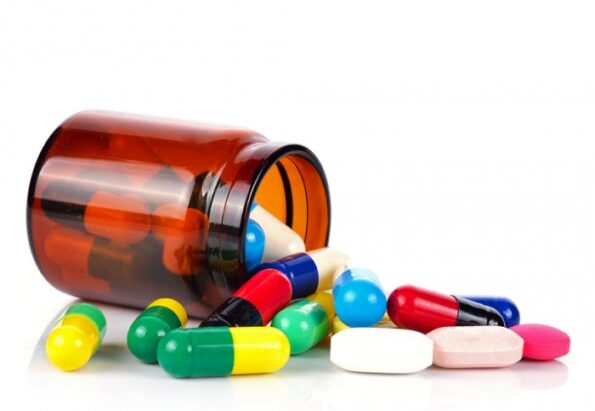Introduction
Antibiotics play a vital role in modern medicine, revolutionizing the treatment of bacterial infections. This comprehensive guide aims to provide a thorough understanding of antibiotics, their mechanisms of action, common uses, potential side effects, and the importance of responsible antibiotic use. By the end of this article, readers will be equipped with valuable knowledge to make informed decisions when it comes to their health and the use of antibiotics.

What Are Antibiotics?
Antibiotics are powerful medications that are designed to kill or inhibit the growth of bacteria. They work by targeting specific components within bacterial cells, disrupting their vital processes and ultimately leading to their elimination. These medications have been instrumental in treating a wide array of bacterial infections, ranging from mild to life-threatening conditions.
Mechanism of Action
Understanding how antibiotics work is crucial in comprehending their effectiveness. Antibiotics employ various mechanisms of action, depending on their classification. For instance, penicillins and cephalosporins inhibit bacterial cell wall synthesis, causing the cell to burst. On the other hand, tetracyclines and macrolides interfere with protein synthesis, preventing bacteria from multiplying. By targeting specific bacterial processes, antibiotics effectively combat infections and restore health.
Common Uses OF Antibiotics
Antibiotics are commonly prescribed for a range of bacterial infections, including respiratory tract infections, urinary tract infections, skin and soft tissue infections, and certain sexually transmitted diseases. They are also used prophylactically during surgeries to prevent post-operative infections. However, it is important to note that this medication are ineffective against viral infections, such as the common cold or flu.
Potential Side Effects of Antibiotics
Like any medication, antibiotics can have side effects. Common side effects include nausea, diarrhea, and allergic reactions. In some cases, this medication can disrupt the balance of beneficial bacteria in the gut, leading to conditions such as antibiotic-associated diarrhea or even more severe complications like Clostridium difficile infection. It is essential to consult a healthcare professional if any concerning side effects occur during antibiotic treatment.
Responsible Antibiotic Use
Responsible antibiotic use is crucial to combat the rise of antibiotic resistance. Overuse and misuse of antibiotics can lead to the development of resistant bacteria, rendering these medications less effective. It is important to follow healthcare professionals’ instructions regarding dosage, duration, and frequency of antibiotic use. Completing the full course of this medication, even if symptoms improve, is vital in preventing the emergence of resistant bacteria.
Future Developments
In the face of antibiotic resistance, researchers are continuously exploring new avenues to combat bacterial infections. This includes the development of new antibiotics, alternative therapies such as phage therapy, and strategies to enhance the immune system’s ability to fight infections. Additionally, public health initiatives and education campaigns are being implemented to raise awareness about responsible antibiotic use.
Conclusion
Antibiotics have undoubtedly revolutionized modern medicine, saving countless lives since their discovery. However, their effectiveness is at risk due to the emergence of antibiotic-resistant bacteria. By understanding how this medication work, their common uses, potential side effects, and the importance of responsible use, we can ensure that these life-saving medications remain effective for future generations.
In conclusion, antibiotics are powerful tools in the fight against bacterial infections. By using them responsibly and understanding their limitations, we can ensure their effectiveness and preserve their life-saving potential. Remember, always consult a healthcare professional for guidance on antibiotic use, and together, we can combat antibiotic resistance and protect our collective health.
